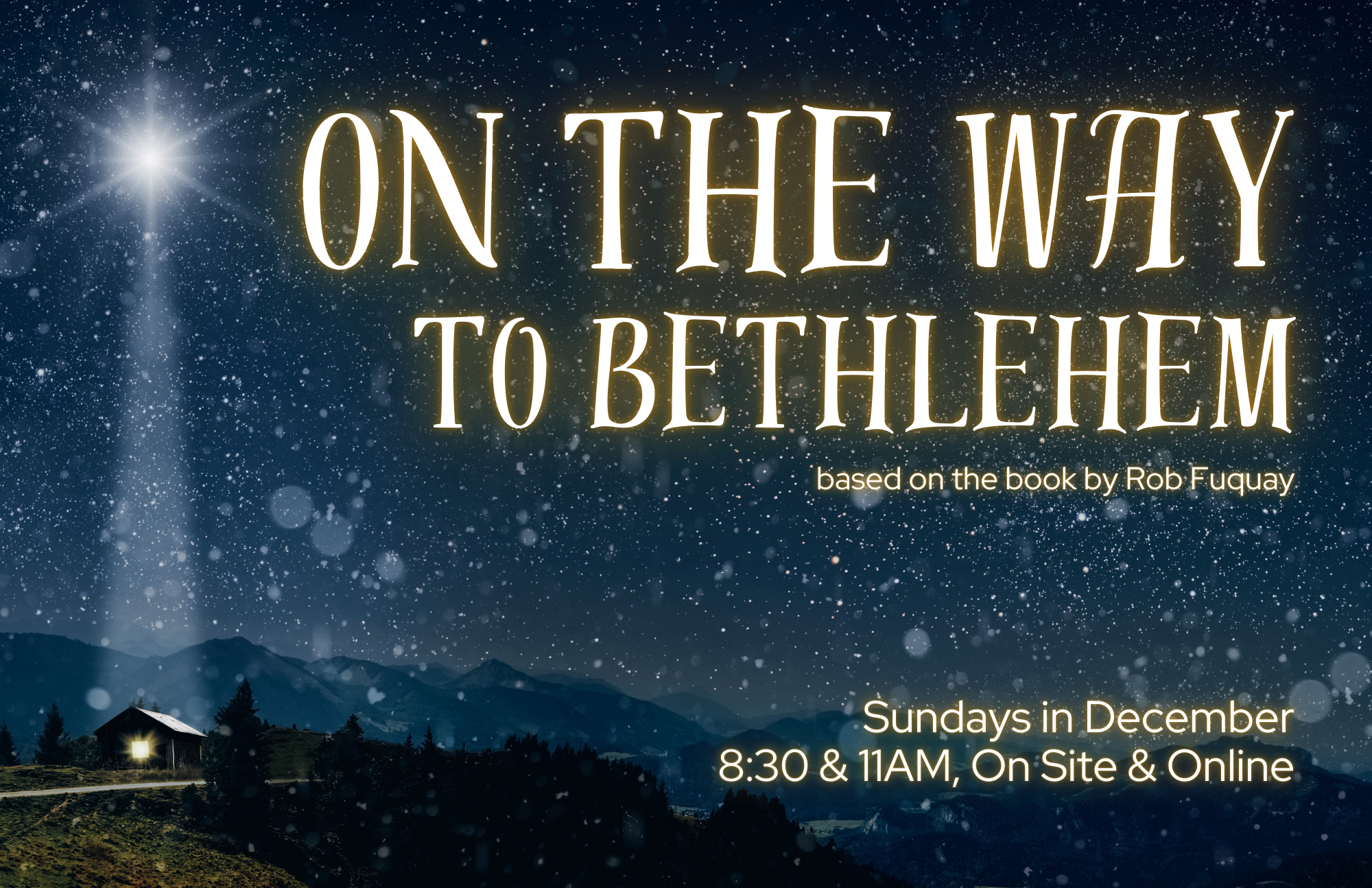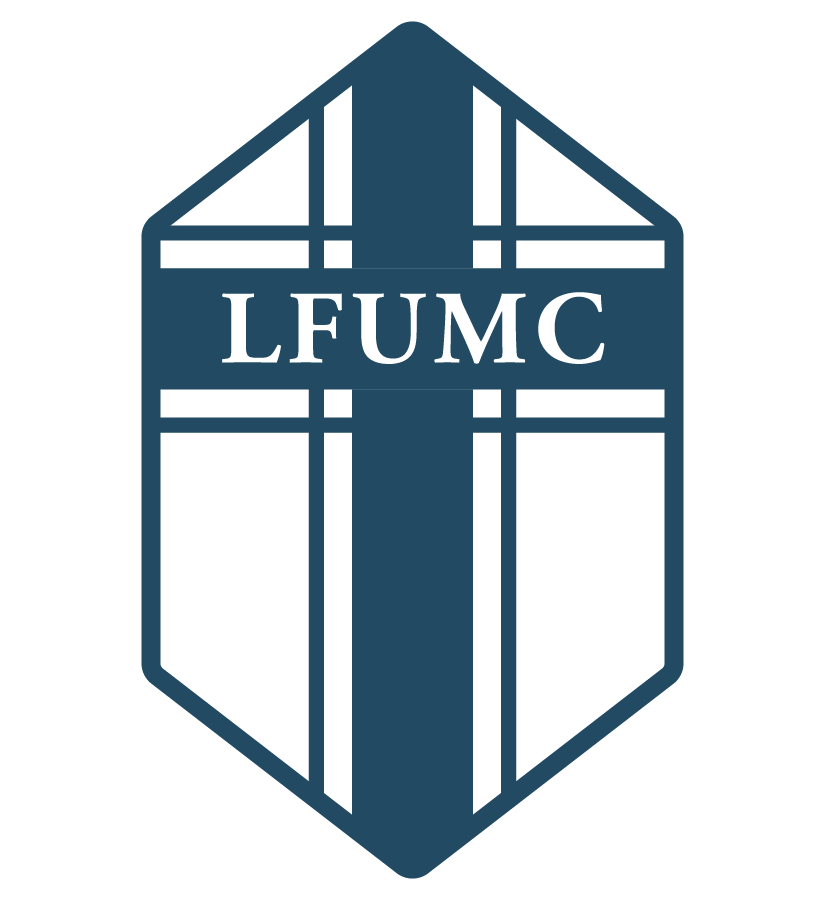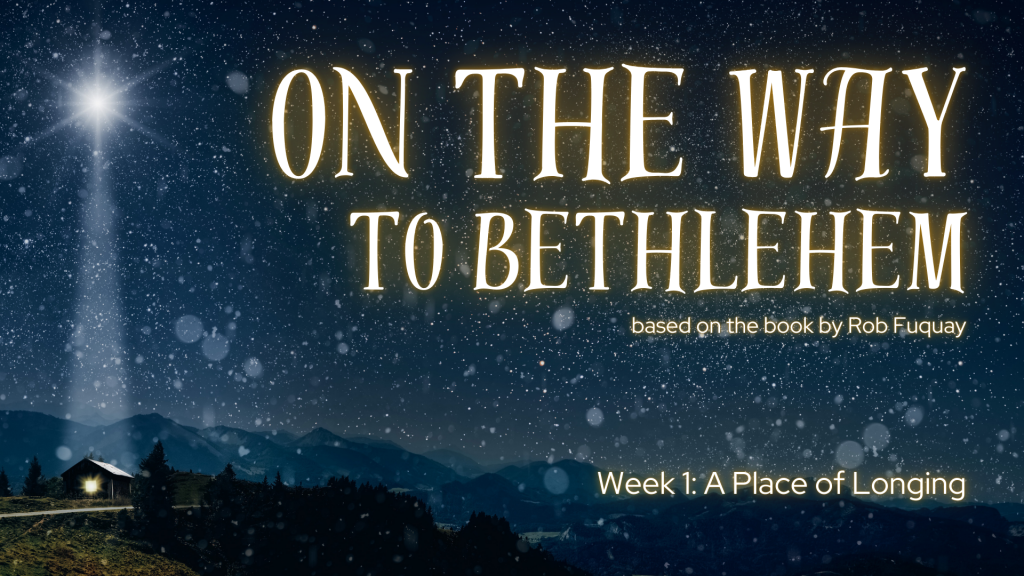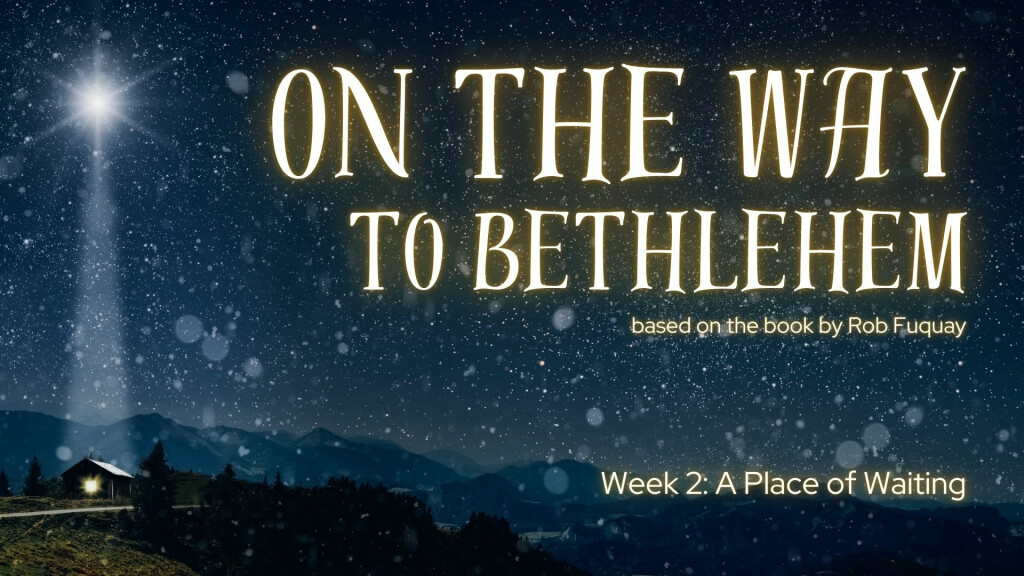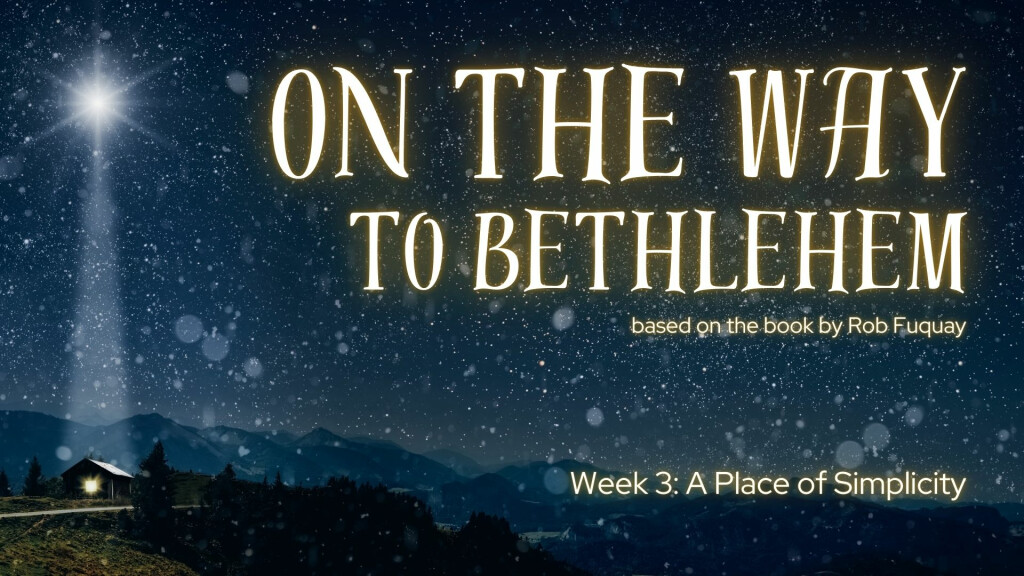December 01, 2024 | Ryan Bennett
Passage: Romans 8:15-25
Today begins Advent, a season of longing and waiting and hoping before Christmas. Advent comprises the four Sundays before Christmas, and it is a time of preparing our hearts and lives and homes for Jesus. Notice I didn’t say to remember the birth of Christ. We do that of course, but the bigger hope is that through this Advent and Christmas season we are changed and will carry more of Jesus with us in our hearts and lives. This Advent, we will be using the book, On the Way to Bethlehem as our guide in our sermon times, and Pastor Steve will be teaching on it in Hesson Hall during Sunday School for anyone who wants to be a part of it. This book takes us on a journey through important locations and their impact on the Christmas story. It also helps us understand how those places still affect us today. The journey will take us from Rome to Jerusalem to Nazareth to Bethlehem, then beyond Bethlehem to Persia. It is appropriate that this Advent takes us on a journey, because Mary and Joseph had to go on a journey themselves that landed them in Bethlehem.
This brings us to Rome. Why Rome? After all, it was over 2000 miles away from Bethlehem with the Mediterranean Sea between the two. Due to the long-distance transportation methods of the day, it might as well have been a hundred thousand miles away. It wasn’t easily traveled. Rome was founded 800 years before Jesus’ birth. Rome’s political influence helped establish principles that shaped much of modern democracy. Following a series of civil wars, Octavian emerged as the leader of Rome and took a title from his great uncle Julius Caesar, calling himself Caesar Augustus. He came to power in 27 BC and ushered in the beginning of what we know as the Roman Empire. Augustus expanded the Roman Empire into the far reaches of Europe, the Middle East, and even North Africa. During this time, the city of Rome flourished. It was the largest city in the world. Augustus is credited with ordering several censuses for the purpose of increasing tax revenue which would strengthen Rome's infrastructure of roads and aqueducts, as well as its military so it could continue to conquer neighboring peoples. One census was taken around 6 BC, which should be of particular interest to us.
The Christmas story in Luke 2 begins - IN THOSE DAYS, A DECREE WENT OUT FROM CAESAR AUGUSTUS THAT ALL THE WORLD SHOULD BE REGISTERED. THIS WAS THE FIRST REGISTRATION AND WAS TAKEN WHILE QUIRINIUS WAS GOVERNOR OF SYRIA. ALL WENT TO THEIR OWN TOWNS TO BE REGISTERED.
We tend to think about all of this in a romantic way, but it was not. A decree went out to all of the areas that were under Roman control. That included Israel. It was occupied territory. Jews
were being forced to participate in this census, and they knew it would cost them. They would have approached this with apprehension, resentment, weariness, and fear. No one besides the locals would have chosen to be at Bethlehem. People were forced to return to their ancestral homes to be counted. This forgotten city wasn’t able to handle the volume of people that had descended upon it. On top of all of that, the military would have been tasked not only to carry out the census, but to keep order among the weary, irritated travelers disgruntled, angry travellers. SO MUCH FOR THE SONG WE SING - O LITTLE TOWN OF BETHLEHEM HOW STILL WE SEE THEE LIE. It was nothing of the sort. It was a frustrating and chaotic scene. All of this because Caesar Augustus issued a decree that the Roman Empire should be counted for a census for the purpose of taxing the people.
An aside to help us understand the power structure: Caesar Augustus was the king of the Roman Empire and was the absolute authority, but he had local authorities in place to handle different regions of his empire. They were generally from the people of that region to give the appearance that one of their own was ruling over them. This person was put in place though by the king of Rome and was loyal to him at all costs. Augustus didn’t care what else these kings did as long as they did what he told them. In Judea, he chose Herod the Great to be king. Herod was Jewish by birth but had spent most of his life in Gentile company and had an affinity for them. Herod did anything to preserve his power and rule. He executed his wife, his in-laws, and even his sons because he felt they were a threat. When he heard there was a baby born who would be king, he ordered his men to kill all babies who were around the age Jesus would have been. All this was empowered by the control given by Rome.
Rome is that place where decisions are made which impact your life beyond your control. I don’t think it is hard for us to imagine places where Rome may be for us today. Places like Washington DC, the state capitol, or the county or city mayor’s office. Over the last 8 years, no matter which direction you tend to lean politically, I feel certain there have been decisions made that you disagreed with and you feel had an adverse affect on you, your family, and our nation. That is kind of the general nature of politics. It can be frustrating to have your life controlled by a person or group of people who have no clue who you are or who care nothing about your best interests. Imagine this in a nation taken over and under the control of another nation. That was how it was between Rome and Israel. Israel had a deep longing for something better. They had a longing for justice. They had a longing to be free and not held under military occupation.
This is where Advent begins, in a place of longing. Our road to Christmas begins in Rome: the seat of power, the place of authority where decisions are made that controlled so many others, where a decision to hold a census was made, where a decision to tax others was made, where a corrupt power-hungry leader was put in charge of Judea who tried to have Jesus killed. Rome was the root cause of the longing of the day.
In our text for today—interestingly it is Paul’s letter to the church IN Rome—Paul said, “for creation waits with eager longing for the revealing of the children of God, for the creation was subjected to futility, not of its own will, but by the will of the one who subjected it, in hope that the creation itself will be set free from its enslavement to decay and will obtain freedom of the glory of the children of God.”
This season begins with a time of waiting because of the deep longing for the world to be made right, where wars cease and peace reigns throughout the land. We long for a world where evil has no footing and people do not act out of self interest but for the good of all. We long for a time when death is no more and disease and homelessness and hunger are no more. This season must begin in longing because it reminds us of the importance of Christmas. It reminds us that Jesus came to set the world right.
Rome can be a hard place to have faith, but it is also a place that reminds us of our need for faith. The impact Rome has on the Christmas story reminds us that Christ meets us in the places where we feel helpless to know what to do, where to turn, how to act. He meets us where we are weary and fearful and resentful. He meets us in those places where we feel like we have no control over our lives. He meets us when we are tired of the world and its ways, its antics - WHEN WE LONG FOR SOMETHING ELSE.
Jesus meets us in our places of deep longing for something better. What we see in the Christmas story is that despite the Romes that are in play in our lives, God is still in charge, working it all out in God’s perfect time.
So today, we begin Advent in a place of longing, a place of disruption and uncertainty and fear. It is where it has to start.
Thanks be to God
AMEN
Series Information
